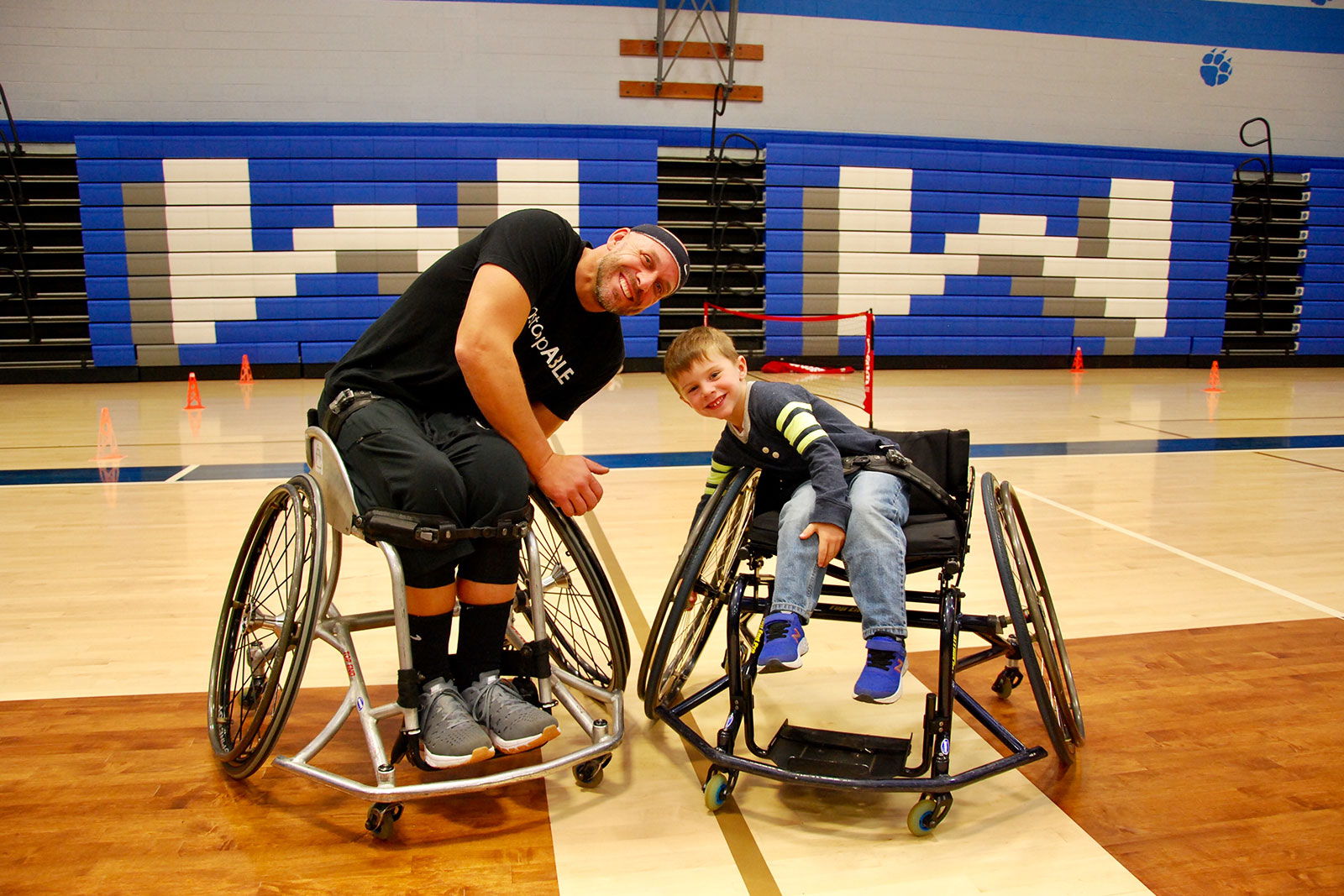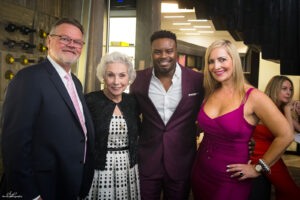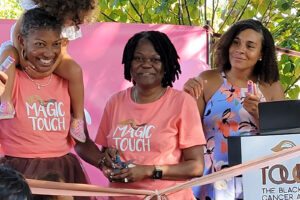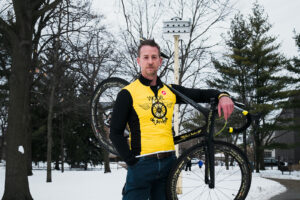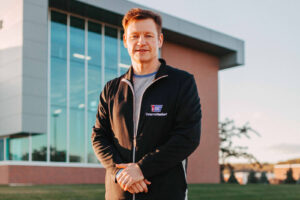“My goal is to create opportunities for a higher quality of life,” says Damian Buchman, founder of Milwaukee’s The Ability Center and RampUPMKE. “[With The Ability Center], everything we do and everywhere we focus is about playing together and creating an equitable experience for people with disabilities.”
Buchman, a childhood cancer thriver, is using his experience to promote opportunities to allow play for people of all abilities and ages, and change the conversation around accessibility and inclusivity. Today, Buchman celebrates 26 years of survivorship. He received a double cancer diagnosis at ages 13 and 14: osteosarcoma in both legs required 22 knee-replacement surgeries. His experience makes him acutely aware of how community-based recreational activities favor the non-disabled.
This is most commonly seen at places like community parks and beaches. At Milwaukee’s two public ice skating rinks, The Ability Center has provided ice skating sleds. “Regardless of disability, [everyone] has been able to ice skate now,” Buchman says. “The ice skating rink will check out skates to anybody else, so we’re saying people with disabilities should have the same opportunities.” At Milwaukee’s Bradford Beach, The Ability Center has provided beach-accessible wheelchairs (which feature larger wheels that more adeptly maneuver across the sand), and is also building a ramp onto the beach—without being exclusionary. “We’re making a ramp that’s about accessibility look just like an entrance to the beach,” Damian begins. “[It isn’t] a ramp that looks like it’s for people with disabilities, [because] we don’t want to single out the user, right?”
This philosophy is at the heart of Buchman’s work. The Ability Center is in the middle of building a “fully inclusive park” at Wisconsin Avenue Park, just outside of Milwaukee (a project they’re aiming to complete in the next 12 to 18 months). This is far different from a “universal playground,” according to Buchman. “[A] playground is often in a multi-acre park, and what you’re really doing is saying, ‘Here’s your corner of this multi-acre park.’” Instead of a corner of a public area, Buchman wants to make the entire park accessible and inclusive for a full-range of disabilities. “A [non-disabled] sibling, they shouldn’t have to feel guilty to leave the playground because [their sibling] can’t come with him, right? He should feel perfectly fine to explore the whole park, because [the sibling] won’t just be stuck on the playground,” he says.
“These are the kind of things we’re pushing and questions we’re asking,” Buchman continues. “What about the parent with a disability? […] How do we make sure the whole park, from east to west and north to south, is fully accessible?” Because while a cancer diagnosis can result in physical disabilities, Buchman’s focus isn’t so narrow. “It’s a spectrum—of intellectual, developmental, physical—from the child to the grandparent,” Buchman says. “There’s a generation of grandparents who don’t want to sit on the bench and watch anymore, they want to engage in play, and so what about making sure the elderly [can] engage on the playground?”
There’s a difference between access and opportunity: Access means I can get in the door, [but] what’s my opportunity in that space? […] What are the things that I can do or can’t do versus what everybody else can?
The Ability Center’s motivations are based on seven principles of playground design as identified by GameTime, a park building group partnering with The Ability Center on their inclusive playground project. They are: create equitable opportunities, access flexibilities (i.e., include things like ramps in playground design), simple and intuitive design, promote independence and individual exploration, meet safety standards, accommodate diverse needs, and allow space for movement and gathering.
Organizations like GameTime and The Ability Center fill gaps left by federal legislation. Although the Americans with Disabilities Act passed in 1990 and includes guidelines for accessibility in public spaces, these are far from comprehensive. “It’s an important piece of legislation that has opened a lot of doors, [but] the law basically says that you can get in,” Buchman says. “So there’s a difference between access and opportunity: Access means I can get in the door, [but] what’s my opportunity in that space? […] What are the things that I can do or can’t do versus what everybody else can?”
Another initiative of The Ability Center is working with local schools to ensure a similar level of inclusivity in physical education classes. Their Adaptive Athletic Program teaches all students how to play games designed to accommodate particular disabilities. The Ability Center conducts “P.E. takeovers” and provides wheelchairs for all students in the class to play games like wheelchair basketball and wheelchair tag. “By giving a kind of experiential educational atmosphere where [students] actually touch it, see it, feel it, [and] play it, I think that that will open their eyes brighter than just talking about it,” Buchman says. Another game, called Goal Ball, is designed for the vision impaired, and features black-out goggles (worn both by seeing people as well as those who are fully blind) and a ball that emits sound. According to Buchman, hardware like wheelchairs or black-out goggles are just part of the game: “This isn’t an adaptation for you; this is a piece of sports equipment that all the athletes wear,” he says. “It’s just a different pair of ‘shoes.’ They’re no different than a pair of Jordans; [it’s] just the type of equipment we need to play.”
At the end of the day, Buchman’s work at The Ability Center is about providing universal access for everyone, without the stigma from being singled out or having to use special devices compared to non-disabled children and adults. “I want [them] to feel wanted, welcomed and comfortable everywhere [they] go,” Buchman says. In the future, he hopes to expand The Ability Center’s reach beyond Wisconsin. “All of our programs are absolutely scalable,” he says. “We certainly hope to make The Ability Center a nationwide movement where all communities understand the importance and value when everybody can play together.”
To learn more about The Ability Center, visit tacwi.org
To learn more about The Ability Center, visit tacwi.org

